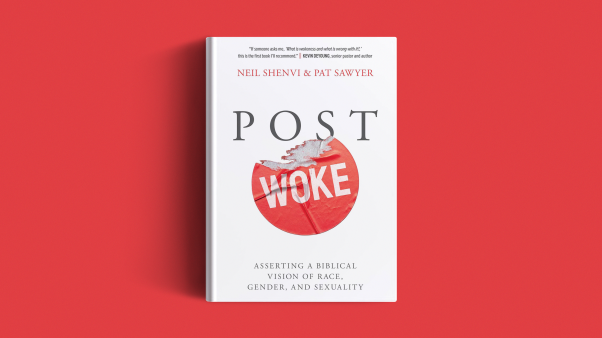As an editor at a Christian publisher, I review multiple book proposals each week. Authors pitching a new project will share a table of contents, a sample of their writing, their bio, statistics about their platform, and—always—a list of confirmed or potential endorsers.
It’s a strange detail, since most trade nonfiction books aren’t already written when the author goes under contract with a publisher. This means that endorsers have agreed to endorse something that doesn’t exist.
Authors and agents are simply playing the rules that publishers set, and in Christian publishing—as with all book publishing—it’s about who you know.
Many authors hate seeking endorsements; it feels self-promotional and vulnerable. But endorsements are simply part of the deal, going back to at least 1856, when Walt Whitman had Ralph Waldo Emerson’s letter praising Leaves of Grass published in the New-York Tribune prior to the book’s second edition.
Today, publishing leaders hope authors will receive a “blurb” from someone with name recognition or clout. The reasoning goes that if readers like an endorser, they’re more inclined to buy or read a book they’ve blurbed. An endorsement says, I can vouch for this person and their work. This takes on a spiritual layer in Christian publishing, where endorsers can lend theological cover for someone’s work.
It's a risky thing to do—especially when an endorser hasn’t read the book.
Last week, The Gospel Coalition published, then unpublished, an excerpt from the forthcoming book Beautiful Union: How God’s Vision for Sex Points Us to the Good, Unlocks the True, and (Sort of) Explains Everything. Readers criticized the author, Joshua Ryan Butler, saying he misconstrued the marriage metaphor in Ephesians 5, making it pornographic, male-centric, and ripe for abuse.
As criticisms mounted, ministry leader Dennae Pierre and pastor Rich Villodas publicly retracted their book endorsements. Pierre said she had written hers “based on training Josh had done for local pastors” and had done a “quick skim” of the book. Villodas said a mutual friend had invited him to endorse the book: “I agreed to the favor, but in poor judgment, read only 25-30% of it.”
It was good for Pierre and Villodas to admit they hadn’t fully read a book that will feature their names, at least on the first printing. Their retractions are a wake-up call for book buyers: Endorsements aren’t always about quality of writing or theological soundness. In practice, they aren’t even always an honest assessment of someone else’s work.
Rather, in an age fixated on platform, endorsements are about establishing the market appeal of an author based on their connections to famous people. As such, endorsements are usually driven by celebrity, mutual back-scratching, and power consolidated through loose social, professional, and ministry networks. There’s a reason that endorsements come through the marketing team (not editorial): Endorsements are marketing tools, not editorial reviews.
Of course, many endorsers offer blurbs for good reasons. They want to support friends and acquaintances. In a market where sales often boil down to platform, many famous people want to share the spotlight, or shine it on emerging voices. Plus, a Christian culture of niceness—and the blurring of lines between friendship and commerce—make it hard to say no to endorsement requests. (Note that Villodas said he agreed to a “favor.”) After all, whoever blurbs sparingly will also be blurbed sparingly, for God loves a cheerful blurber.
But endorsements can also serve to boost the endorser’s celebrity in a particular niche market. Endorsements signify that the endorser is Someone Important, after all; normies don’t endorse books. (One counterexample: My book Celebrities for Jesus featured endorsements from both “platformed” and “non-platformed” people. I asked my mom if she would write one, and she said no.) The more copies a book sells, the more people could notice an endorser’s name and work. Endorsers aren’t paid—directly. But their market value might rise by attaching to a successful book.
It’s easy to be cynical about the reasons someone would endorse a book without actually endorsing it. This week, I remembered the handful of books I’ve blurbed over the years, wincing at a few that I read less carefully than others. There are too many books in the world, and too many that don’t need to exist. These days, I decline most endorsement requests, because there’s not time to read them and conflicts of interest prevent me from assessing honestly.
But authors and endorsers are simply playing a game set by the industry. And now is a good time for industry leaders to consider dropping endorsements altogether.
I consider it a red flag that some faith-based publishers will write an endorsement for a celebrity who doesn’t have time to write it themselves. Let me repeat that: A publishing team member, coveting a celebrity’s name on a forthcoming title, will contact them or their team and say, “We know you’re very busy because you’re very important and clearly called to do big things for God, so you probably won’t have time to read this book. But we would be so honored to have your support. Might you say something like this? [fill in endorsement].” Then the celebrity or their assistant signs off on the wording or tweaks it before it appears on the book.
Imagine if the blurb appeared as it was written:
Timely and compelling message! —Famous Pastor —Marketing Intern
It doesn’t have the same ring, but at least it’s honest.
Likewise, it’s mostly up to blurbers to be honest about their blurbs. Personally, I would love to see more blurbs that include praise and critique; one needn’t agree with every detail in a book to commend it as worth reading.
But Christian publishers have a big role to play in halting the celebrity endorser cycle. They should invest more in reviewing the contents of a book than in lining up endorsers. That means paying outside reviewers with expertise in a given subject to read the book before publishing it.
It might mean bumping a book’s release date based on concerns. It could mean seeking endorsements from people who don’t have a platform or who have nothing to gain from saying something nice about the book. It could mean asking for genuine feedback from endorsers in addition to three to four lines by a particular deadline—and heeding it.
It would be unorthodox, from an industry view, for faith-based publishers to drop endorsements on principle of resisting celebrity. But it could also honor the central task to which Christian publishers are called: to edify Christian readers and deepen the faith of everyday believers, not to serve as an avenue for aspiring leaders to boost each other’s careers.
Christian publishers have been implicated in scandals around ghostwriting, plagiarism, and extending the platforms of unhealthy and abusive leaders. If they are also asking endorsers to essentially lie to book buyers, we have deep problems to attend to.
Katelyn Beaty is editorial director of Brazos Press, a division of Baker Publishing Group. She is the author of Celebrities for Jesus: How Personas, Platforms, and Profits Are Hurting the Church.
Speaking Out is Christianity Today’s guest opinion column and (unlike an editorial) does not necessarily represent the opinion of the publication.











